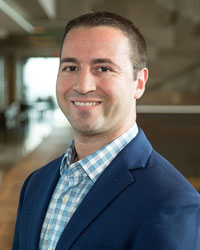Strategy is concerned with creating and defending an organization’s competitive advantage in changing environments. To be successful, organizations must leverage and renew their resources, competencies and leadership skills, sometimes in multiple industries at the same time. Such organizations survive longer, perform better, and elicit favorable evaluations from their stakeholders, thereby shaping how industries change over time.
The faculty (Bob Andersen, Oana Branzei, Mary Crossan, Dilan Eren, Mohammad Hosseini, Esther Leibel, Lara Liboni, Cara Maurer, Krista Pettit, Seemantini Pathak, Mazi Raz, Dusya Vera, Lee Watkiss, and Mark Zbaracki) and doctoral students of the Strategy group at Ivey engages these wide-ranging phenomena in their research and teaching by drawing on multiple disciplines, including economics, psychology, political science, and sociology. The goal of this engagement is to advance the academic study of strategy and related disciplines and help managers improve their strategic decisions. Our research has been widely published in top management, sociology and political science journals, including Academy of Management Journal, Academy of Management Review, Administrative Science Quarterly, American Sociological Review, American Political Journal of Political Science, Organization Science, and Strategic Management Journal.
The program emphasizes a strong foundation in strategic theory, research methods, and statistics. Students are exposed to both classic and recent scholarly work, exposing them to the key paradigms to help them build mental models of different theoretical perspectives and develop a keen appreciation of the interconnectedness of the different research streams in the field of strategic management.
During the first two years of the program, students take a set of complementary courses in strategic management theory at the business-unit, corporate, and global levels, organizational theory, and others drawn from across the social sciences. Students also take a series of research methods courses including requires statistical methods courses and optional qualitative methods courses. Other aspects of the program are tailored to fit the student’s own research and teaching interests.
During their doctoral studies, students engage in research both independently and in collaboration with faculty. Between the second and third years of the program, students complete a major, independent, empirical research project. All students are encouraged to present their research at academic conferences as well as to submit articles to top-tier research journals for peer review.
The doctoral program in Strategy is designed to produce scholars. Students graduate as creative, independent scholars with the skills necessary to conduct cutting-edge research in the field of strategy and related disciplines. We aim to produce excellent researchers and teachers. In other words, we train our graduates to become academics in a university setting. If your interest is consulting, industry, or other non-university sector employment, you would be better to pursue an MBA or MSc degree.
*Please note that Strategy is a stream under General Management
Areas of Research Focus
· Corporate and behavioral strategy
· Organizational learning and strategic renewal
· Strategy implementation
· Strategic decision-making
· Inequality, diversity and justice in business and organizations
· Power and politics in decision-making and learning
· Corporate governance
· Strategic leadership and human resource management
· Character-based leadership as a competitive advantage
· Technological innovation
PhD Student Opportunities
The doctoral program in Strategy is recruiting students with the following research interests.
Professor Bob Andersen is interested in the impact that inequality and diversity have on organizations, business and society. Although my research is mostly quantitative, I am also open to supervise qualitative projects. I am especially interested in issues related to: a) the role that organizations have played in the increase in income inequality over the past few decades (and especially cross-national differences); b) how inequality and diversity within organizations affect productivity and/or innovation; c) how cross-national differences in social, economic and political conditions influence organizational strategy; and d) the social bases of attitudes, the role that inequality and/or diversity play, and their impact on organizations. More information on my recent research can be found at my faculty bio page (https://www.ivey.uwo.ca/faculty/directory/bob-andersen/) and my Google scholar page (https://scholar.google.ca/citations?user=8N_-rqQAAAAJ&hl=en).
Professor Mary Crossan will help support PhD students interested in focusing on leader character, organizational learning and strategic renewal. My research is not limited by discipline boundaries. My ultimate interest is to contribute to research and practice on the drivers of sustained excellence in organizations and ultimately society. This pursuit has led me into the areas of organizational learning for strategic renewal, improvisation as it relates to strategic agility and innovation, and more recently the foundational role of examining the strength of character (e.g. courage, humility, humanity, transcendence, drive, integrity, etc.) as it relates to both individual well-being and sustained excellence in organizations. I am a Distinguished University Professor at Western, which is Western’s highest honour recognizing sustained excellence in research, teaching and service. I have an excellent track record working with doctoral students, and collaborate with many Ivey faculty and faculty around the world in my research endeavors. Sample publications:
- Pettit, K.; Crossan M. "Strategic renewal: Beyond the functional resource role of occupational members", Strategic Management Journal, 2020, 41:1112-1138.
- Crossan, M.; Apaydin, M. A Multi-Dimensional Framework of Organizational Innovation: A Systematic Review of the Literature, Journal of Management Studies, 2010, 47 (6), 1154-1191. (Top 10 downloaded article since 2013)
- Crossan, M.; Byrne, A.; Seijts, G. Reno, M.; Monzani, L., Gandz, J.: "Toward a Framework of Leader Character in Organizations" Journal of Management Studies, vol. 54 (7) 986-1018, January, 2017.
- Crossan, M.; Lane H.; White, R.E. "An Organization Learning Framework: From Intuition to Institution"; Academy of Management Review; vol. 24, no. 3, 522-537,1999. (received the decade award from AMR in 2009 as the most highly cited paper in the prior decade)
Professor Lara Liboni is recruiting PhD students with an interest in studying how stakeholder theory and strategic approaches to value creation can inform the analysis of how to engage stakeholders to address collective action problems and promote new resources and capabilities.
Sample research that supports this new stream of research includes:
- Why resource-based theory’s model of profit appropriation must incorporate a stakeholder perspective
- Public-Private Collaboration, Hybridity and Social Value: Towards New Theoretical Perspectives
Professor Krista Pettit (and co-supervisor TBD depending on the dissertation topic) is recruiting PhD students with a research interest in strategy-as-practice with a particular focus on how interactions shape strategy. Topics within this research area can range broadly. We welcome applications from students with an interest in examining how interactions between human practitioners within an organization and/or interactions between organizations and key external stakeholders shape strategic change. This opportunity is for researchers using qualitative methods.
Professors Dusya Vera and Seemantini Pathak are studying leader character and strategic management. Our interest is to contribute to research and practice on the drivers of sustained excellence in organizations and ultimately society, with particular interest in WHO strategic leaders need to be to achieve sustained excellence. The area of focus is character as applied to strategic leadership and strategic management, examining strength of character (e.g. courage, humility, humanity, transcendence, temperance, drive, integrity, etc.) as it relates to areas such as organizational learning, corporate governance, corporate scope and strategy, and the grand challenges of society. Sample publications:
- Vera, D., & Crossan, M. 2023. “Character-enabled improvisation and the new normal: A paradox perspective.” Management Learning, 54(1): 77-98.
- Crossan, M., Nguyen, B., Vera, D., Sturm, R., & Ruiz Pardo, A. 2023. “Leader character in engineering projects: A case study of character activation, contagion and embeddedness.” IEEE Transactions of Engineering Management.
- Vera, D., Bonardi, JP, Hitt, M., & Withers, M. 2022. “Extending the boundaries of strategic leadership and strategic management research.” The Leadership Quarterly, 33 (3): 101617.
- Chiu, S. C. S., Pathak, S., Hoskisson, R. E., & Johnson, R. A. 2022. “Managerial commitment to the status quo and corporate divestiture: Can power motivate openness to change?: The Leadership Quarterly, 33(3), 101459.
- Salaiz, A., Evans, K. M., Jones, C. D., & Pathak, S. 2022. “CEO-COB prestige distance and change in diversification: Exploring a curvilinear relationship.” The Leadership Quarterly, 33(3), 101544.
- Evans, K., Salaiz, A., Pathak, S., & Vera, D. 2020. "Community influential directors and corporate social performance." Business & Society, 61(1): 225-263.
Professor Mark Zbaracki is recruiting PhD students interested in how Artificial Intelligence is shaping managerial practice, with a special focus on how AI applications to pricing have implications for issues of justice. Firms have learned to use supercharged pricing algorithms to maximize profit and gain competitive advantage, but the application of AI to pricing can also have profound social implications. I am exploring how firms consider the concerns of justice and strategy when they use AI to enhance their pricing decisions. Sample research includes:
- How AI Can Help Companies Set Prices More Ethically, Harvard Business Review, 2021.
- “Truth, Beauty, and Justice in Social Science Models,” Research in the Sociology of Organizations, (with Lee Watkiss, Cameron McAlpine, and Julian Barg) forthcoming.
- Pricing process as capability, Strategic Management Journal.
- Pricing as a strategic capability, Sloan Management Review.
Professors Mark Zbaracki and Lee Watkiss are recruiting PhD students with an interest in studying how interpretation and politics shape strategic decision-making and learning. This stream of research, revisits earlier work (Strategic Decision Making) and is being extended in research with a current PhD student, Cameron McAlpine. Our approach has three components:
- How we interpret the situation matters more than stable preferences in shaping decision making. Sample research includes Of Organizing and Sensemaking: From Action to Meaning and Back Again in a Half-Century of Weick’s Theorizing.
- Political dynamics shape learning and choice in and across organizations. Sample research includes research on The Politics of Organizational Learning.
- Ambiguity shapes decision-making and can be used strategically. A good statement of that approach can be found in a book review found here.
PhD Graduates
Strategy is one of five possible specializations within Ivey’s General Management PhD program. The Strategy specialization is designed for those interested in pursuing academic careers at top business schools in Strategy, Management, or Organization departments.
Dr. Jungsoo Ahn
Assistant Professor, Stony Brook University College of Business

Market actors, such as venture founders, incumbent managers, and third parties, respectively shape categories to influence investors’ perceptions of the nascent markets and related firms. Yet we know less about the idiosyncratic role that producers and third parties play in the investment process. This dissertation seeks to advance our understanding about categorizations in shaping investment decisions... Read more about this thesis
Dr. Andrew Sarta
Assistant Professor, York University

Organizational adaptation is one of the most important concepts in strategic management. Historical conceptions suggest that without it, organizations are likely to succumb to inertia in dynamic environments and with it, organizations are likely to thrive. Despite its rich scholarly history, organizational adaptation continues to lack clarity and is often conflated with market entry, performance, or survival. More importantly, managers do not have a meaningful way to determine whether their organization is well-adapted or maladapted. Knowing when organizations begin to adapt to their changing environments subsequently becomes a difficult question to answer. In this thesis, I develop much-needed clarity to the concept of organizational adaptation while also examining its origins... Read more about this thesis
Dr. Nuruddin Ahmed
Postdoctoral Associate, Massachusetts Institute of Technology

Corporate research and development (R&D) plays an important role in firm-level innovation strategies. To maintain competitive advantage, firms tend to disclose their internal research strategically. Essay 1 of this dissertation examines what motivates firms to publish more papers in Artificial Intelligence (AI). Combining two disparate literatures— R&D disclosure strategy and strategic human capital literature— I argue that scientists have a preference to publish research and when scientists have higher bargaining power, firms tend to disclose more internal research to recruit talent. To test my propositions, I use a comprehensive dataset of 200 million US job postings (from Burning Glass Technologies) and.... Read more about this thesis
